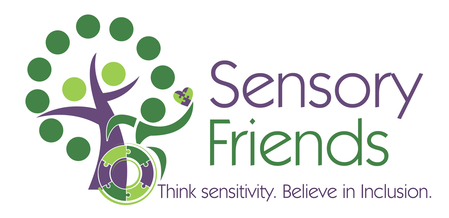
I set up an account for my son Richie who has autism. Now, instead of family members struggling over what to buy Richie for his birthday or holidays, they can contribute to his ABLE savings account!
Since my last post, I have received many questions from my readers about the ABLE United program.
You can catch the answers to some of the top questions here!
Most Frequently Asked Questions about the ABLE United Program:
Historically, financial planning was a challenging issue for individuals with disabilities and their families – until recently. The ABLE (Achieving a Better Life Experience) Act has helped to break the financial planning barriers experienced by the disability community, allowing each state to create tax-free savings programs. The ABLE United program provides more than just financial freedom to individuals with disabilities and their families. It represents a financial independence that opens the door to opportunities. The opportunity to explore career options, post-secondary education, better living arrangements, and to pursue many other dreams that can finally be made a reality.
2. Who can manage an ABLE account?
ABLE savings accounts are managed by administrators. An administrator can be the individual with a disability, also known as the beneficiary. An administrator can be someone who is legally authorized to act on behalf of the beneficiary. This includes, parents, legal guardians, or anyone who has power of attorney to act on behalf of the beneficiary.
3. If an ABLE account is open for a child, will this affect their eligibility to obtain SSI or Medicaid services when they turn 18?
An ABLE account will have no impact on state eligibility for Medicaid or Social Security benefits or existing benefits. There is an exception with regards to SSI benefits - if the individual is receiving SSI benefits and his or her ABLE account has more than $100,000 - this will be considered an asset to the individual with a disability and may cause SSI benefits to be reduced or eliminated.
4. Can a parent use funds for post-secondary education expenses for their child, or should they use a 529 account instead?
Post-secondary education expenses are a qualified disability expense and would be allowed for distribution, there would be no need for an additional 529 education account.
Can I roll over funds from a 529 plan to an ABLE account?
ABLE accounts are a subsection of the IRS code 529 that created the college savings plan. However, current laws do not allow rollover funds from 529 accounts at this time.
5. What is considered a Qualified Disability Expense? What isn’t considered a Qualified Disability Expense?
The laws protecting ABLE accounts describes a Qualified Disability Expense as any expense that is a benefit to, or fulfills a need of the eligible individual with a disability.
This includes expenses for the following: Health, Housing, Transportation, Education, Employment/Training/Support, Assistive Technology, Funeral and Burial, Legal Fee’s, Financial Management, Personal Care and Monitoring, and other expenses approved by the Treasury of Regulations.
Please note that although this post is sponsored by ABLE United through a Bloggin' Mama's campaign, all opinions are my own.


 RSS Feed
RSS Feed